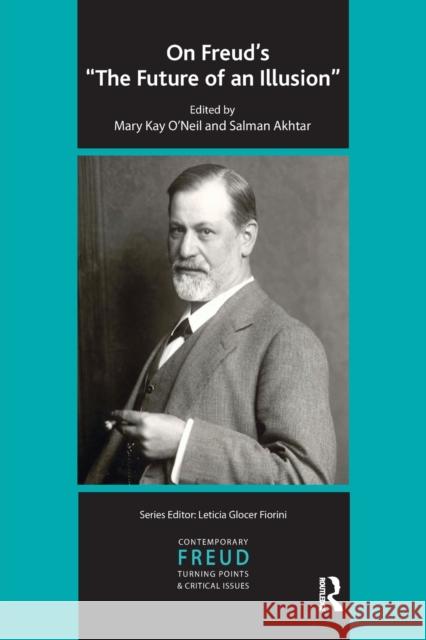On Freud's The Future of an Illusion » książka
On Freud's The Future of an Illusion
ISBN-13: 9781855756274 / Angielski / Miękka / 2009 / 318 str.
On Freud's The Future of an Illusion
ISBN-13: 9781855756274 / Angielski / Miękka / 2009 / 318 str.
(netto: 209,86 VAT: 5%)
Najniższa cena z 30 dni: 203,14
ok. 22 dni roboczych.
Darmowa dostawa!
-The question whether God is a subject for psychoanalysis is something that must be tackled at the very outset of our enterprise. However as we pay attention to it, the question reveals itself to be the product of a tension that exists between those who believe in the existence of God and those who do not. Sigmund Freud, by the very act of making God a subject of metapsychological deconstruction, took ... a resolutely atheistic position...the Illusion monograph is a literary battlefield where -Freud, the Atheist- is involved in a bloody combat with -Freud, the Believer- His pupils and followers adhered -religiously- to the arguments and declarations he made in The Future of Illusion.
The contributors to this book are robust atheists as well as firm believers. There are also those who seem decidedly uncommitted. They come from different regions of the world, represent different ethno-religious backgrounds, and speak in different psychoanalytic tongues. The questions they raise largely pertain to what literal and metaphorical, conscious and unconscious, adaptive and maladaptive, self-soothing and masochistic, and generous and sadistic uses belief in God can be, has been, and is still being put to. Clearly, Freud's intrapsychic -debate- on whether God exists or not has mushroomed into concerns of much larger scope. Knowing his unflappable willingness to learn, grow, and change his opinions, it is safe to assume that this smorgasbord of conceptual diversity would have been welcomed by Freud, even if he chose to use it for arguing even more forcefully for his position - -- Taken from the Introduction by Salman Akhtar











